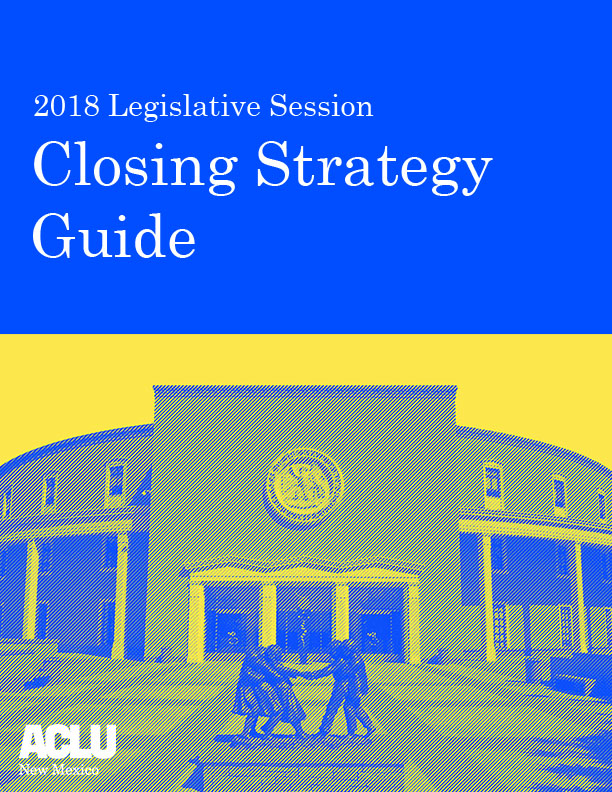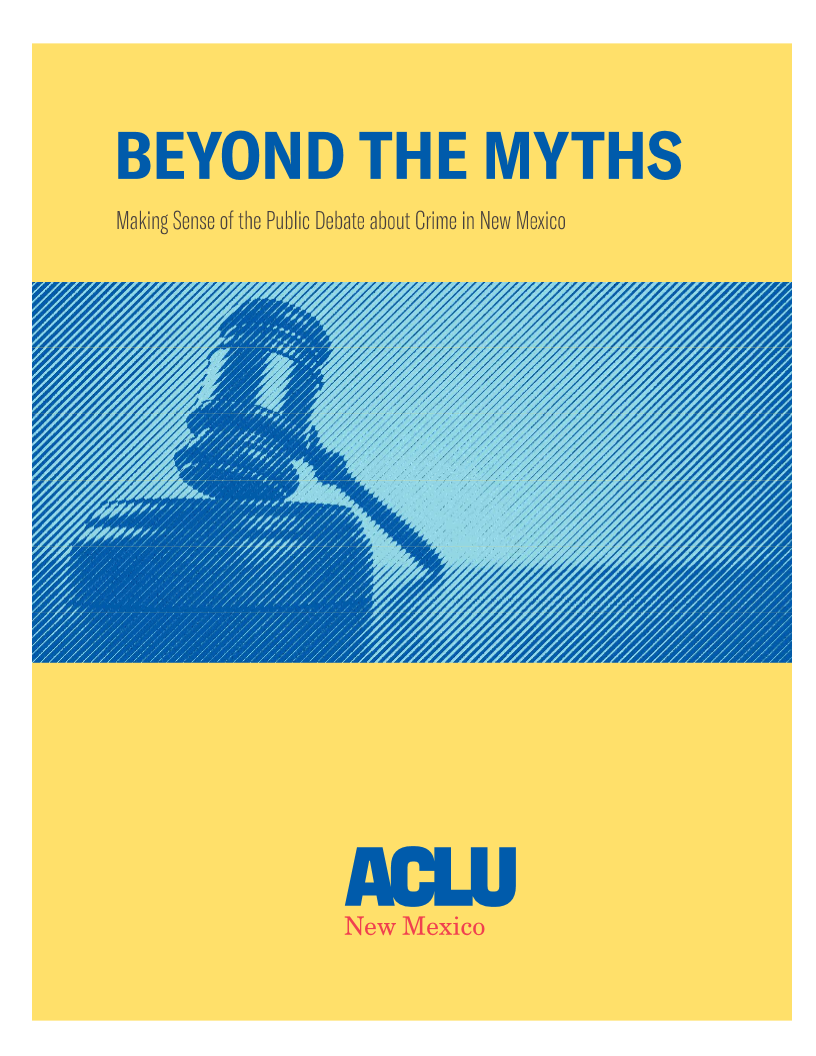The 2018 legislative session has been filled with constant threats to our civil liberties, and we've defeated many of them thanks to your help! For the remaining 8 days of the session, we need to beat back many more bad bills, but we can't do so without your support.
This advocacy guide provides information about ACLU-NM’s legislative agenda in the final days of the session and provides you with ways to get involved on key issues.
Date
Wednesday, February 7, 2018 - 3:00pm
Show featured image
Hide banner image
Documents
Show related content
Tweet Text
[node:title]
Share Image
Type
Menu parent dynamic listing
Featured video (deprecated):
Style
Standard without sidebar
Date
Tuesday, January 30, 2018 - 12:15pm
Menu parent dynamic listing
Style
Standard with sidebar
Here in New Mexico, our criminal justice system is undergoing a series of reforms, aimed at ending unconstitutional policing, jail overcrowding, and wealth-based incarceration to create a justice system that is more accountable, fair, and equitable. Because the reforms are new, it’s still too early to assess what is working and what needs changing. Unfortunately, that hasn’t stopped some elected officials from telling the public that justice reform is causing crime to rise.
Many New Mexicans are asking, what is really going on? This preliminary report clears up some of the confusion by identifying the major reforms underway and separating myth from reality.
Date
Thursday, January 18, 2018 - 11:30am
Featured image
Show featured image
Hide banner image
Override default banner image
Documents
Show related content
Tweet Text
[node:title]
Type
Menu parent dynamic listing
Style
Standard without sidebar
Pages


